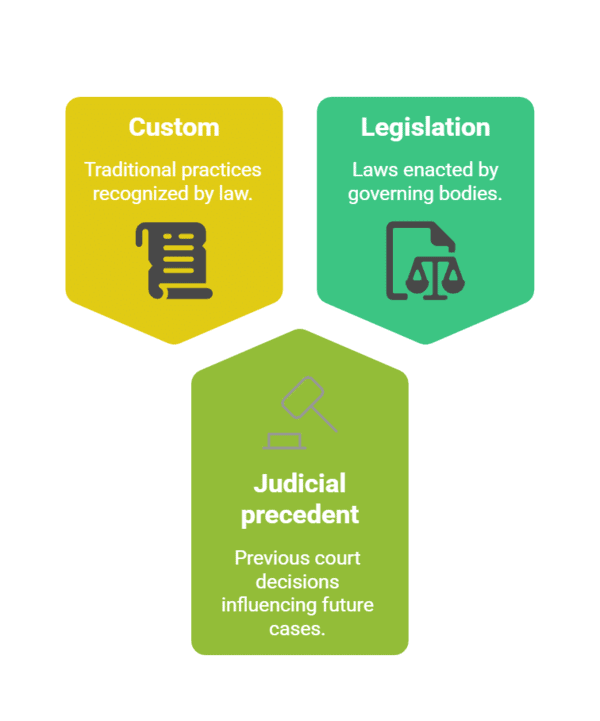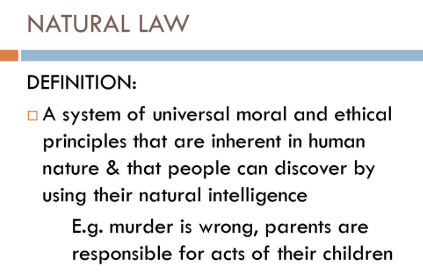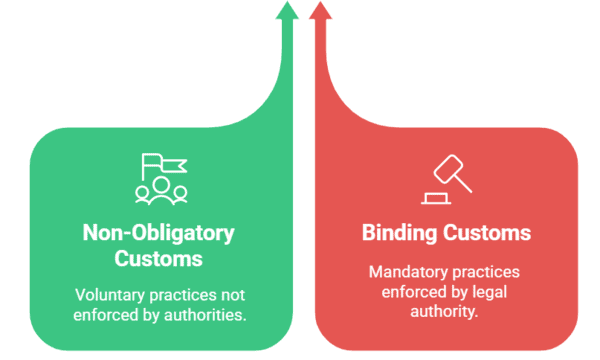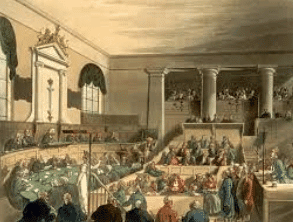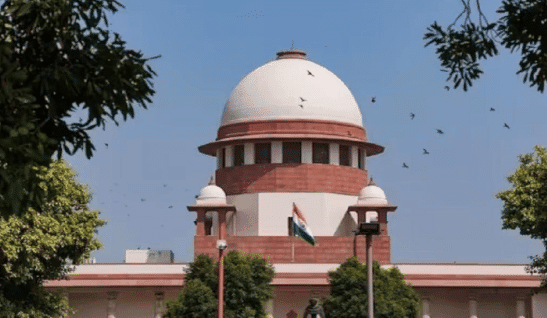|
True or False: The Natural law school considers human reason as a source of law. |
Card: 3 / 30 |
|
Legal experts have diverse perspectives on the sources of law, often viewing them through the lenses of sovereignty, custom, and natural law. |
Card: 6 / 30 |
|
Custom must be observed continuously for a long time without interruption to be considered ___ as a source of law. |
Card: 7 / 30 |
|
False. Not all customs become law; they must align with public morality and legislation. |
Card: 10 / 30 |
|
Customs can be categorized into customs without sanction, which are non-obligatory, and customs with sanction, which are binding and enforced by the State. |
Card: 12 / 30 |
|
True or False: Post-independence, the Indian Parliament abolished all customary practices through legislation. |
Card: 15 / 30 |
 Unlock all Flashcards with EduRev Infinity Plan Starting from @ ₹99 only
|
|
False. The Indian Parliament abolished several outdated customary practices, but not all. |
Card: 16 / 30 |
|
The doctrine of precedent in India's legal system is primarily derived from ___ legal traditions. |
Card: 17 / 30 |
|
In the Indian judicial system, the Supreme Court is the ___ court in the hierarchy. |
Card: 19 / 30 |
|
False. The Supreme Court's decisions are binding nationwide but not on itself. |
Card: 22 / 30 |
|
False. High Court decisions bind subordinate courts within their jurisdiction but are not binding beyond their jurisdiction. |
Card: 24 / 30 |
|
Judges like Justice P.N. Bhagwati and Justice Krishna Iyer are known for ___ constitutional provisions through ___ interpretation. |
Card: 25 / 30 |
|
The term 'legislation' derives from Latin words meaning 'law' and 'to make'; what are these words? |
Card: 27 / 30 |
|
Primary legislation is enacted by ___ and is regulated by ___ while subordinate legislation is made by authorities ___ to the sovereign. |
Card: 29 / 30 |





